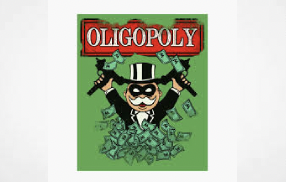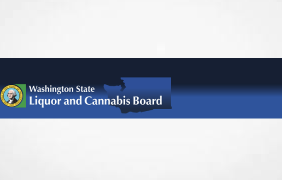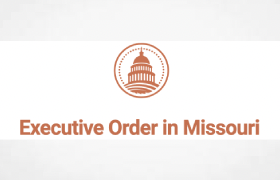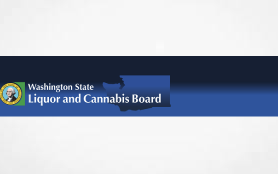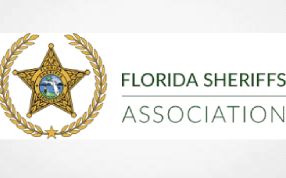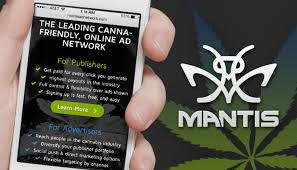15 November 2016
Here’s the guide
It can be found at http://www.mantisadnetwork.com/faq/cannabis-advertising-legal-state/
State-by-State Guide to Cannabis Advertising Regulations
Legal disclaimer: This post is meant as a helpful guide; statements provided in this thread are not to be taken as legal advice. As always, it is highly recommended that you consult with your own legal team to see if advertising your business online is in fact legal in your state. Updated November 7, 2016.
Alaska
Final advertising regulations for retail cannabis are yet to be determined. For more information, please refer to the Alaska Department of Health and Social Services Division of Public Health.
Arizona
There are currently no advertising regulations for medical marijuana dispensaries in Arizona. For more information, please refer to the Rules & Statutes for the Arizona Medical Marijuana Program.
California
Refer to section 2525.5. of the Medical Marijuana Regulation and Safety Act:
(a) A person shall not distribute any form of advertising for physician recommendations for medical cannabis in California unless the advertisement bears the following notice to consumers:
NOTICE TO CONSUMERS: The Compassionate Use Act of 1996 ensures that seriously ill Californians have the right to obtain and use cannabis for medical purposes where medical use is deemed appropriate and has been recommended by a physician who has determined that the person’s health would benefit from the use of medical cannabis. Recommendations must come from an attending physician as defined in Section 11362.7 of the Health and Safety Code. Cannabis is a Schedule I drug according to the federal Controlled Substances Act. Activity related to cannabis use is subject to federal prosecution, regardless of the protections provided by state law.
(b) Advertising for attending physician recommendations for medical cannabis shall meet all of the requirements in Section 651. Price advertising shall not be fraudulent, deceitful, or misleading, including statements or advertisements of bait, discounts, premiums, gifts, or statements of a similar nature.
Colorado
Refer to the Colorado Retail Marijuana Regulations:
R 1102 – Advertising General Requirement: No Deceptive, False or Misleading Statements
A Retail Marijuana Establishment shall not engage in Advertising that is deceptive, false, or misleading. A Retail Marijuana Establishment shall not make any deceptive, false, or misleading assertions or statements on any product, any sign, or any document provided to a consumer.
R 1107 –Advertising: Internet
A Retail Marijuana Establishment shall not engage in Advertising via the internet unless the Retail Marijuana Establishment has reliable evidence that no more than 30 percent of the audience for the internet web site is reasonably expected to be under the age of 21. See also Rule R 1114 – Pop-Up Advertising.
R 1108 – Advertising: Targeting Out-of-State Persons Prohibited.
A Retail Marijuana Establishment shall not engage in Advertising that specifically targets Persons located outside the state of Colorado.
R 1109 – Signage and Advertising: No Safety Claims Because Regulated by State Licensing Authority
No Retail Marijuana Establishment may engage in Advertising or utilize signage that asserts its products are safe because they are regulated by the State Licensing Authority.
R 1110– Signage and Advertising: No Safety Claims Because Tested by a Retail Marijuana Testing Facility
A Retail Marijuana Establishment may advertise that its products have been tested by a Retail Marijuana Testing Facility, but shall not engage in Advertising or utilize signage that asserts its products are safe because they are tested by a Retail Marijuana Testing Facility
R 1112– Signage and Advertising: No Content That Targets Minors
A Retail Marijuana Establishment shall not include in any form of Advertising or signage any content that specifically targets individuals under the age of 21, including but not limited to cartoon characters or similar images.
R 1113 – Advertising: Advertising via Marketing Directed Toward Location-Based Devices
A Retail Marijuana Establishment shall not engage in Advertising via marketing directed towards location-based devices, including but not limited to cellular phones, unless the marketing is a mobile device application installed on the device by the owner of the device who is 21 year of age or older and includes a permanent and easy opt-out feature.
R 1114 – Pop-Up Advertising
A Retail Marijuana Establishment shall not utilize unsolicited pop-up Advertising on the internet.
R 1115 – Advertising: Event Sponsorship
A Retail Marijuana Establishment may sponsor a charitable, sports, or similar event, but a Retail Marijuana Establishment shall not engage in Advertising at, or in connection with, such an event unless the Retail Marijuana Establishment has reliable evidence that no more than 30 percent of the audience at the event and/or viewing Advertising in connection with the event is reasonably expected to be under the age of 21.
Connecticut
Refer to the Medical Marijuana Advertising Guide (“Guide”) issued by the Connecticut Department of Consumer Protection for a full list of general principles that the Department will use in evaluating certain advertising practices to confirm their compliance with the Department’s regulations:
What types of advertisements are prohibited?
– Advertisements for marijuana or any product containing marijuana that: contain statements that are false or misleading;
– contain statements that falsely disparage a competitor’s product; include obscene or indecent statements, designs, representations, pictures, and/or illustrations;
– contain statements, designs, representations, pictures, or illustrations that encourage or represent the use of marijuana for a condition other than a debilitating medical condition;
– contain statements, designs, representations, pictures, or illustrations that encourage or represent the recreational use of marijuana;
– contain statements, designs, representations, pictures or illustrations that are related to the safety or efficacy of marijuana (unless supported by substantial evidence or substantial clinical data);
– contain statements, designs, representations, pictures, or illustrations portraying anyone under the age of eighteen, objects suggestive of the presence of anyone under the age of eighteen, or containing the use of a figure, symbol or language that is customarily associated with anyone under the age of eighteen;
– include the offer of a prize, award or inducement to a qualifying patient, primary caregiver, or physician related to the purchase of marijuana or certification for the use of marijuana; or
– include statements that indicate or imply that the product or entity in the advertisement has been approved or endorsed by the Commissioner, Department, the State of Connecticut or any person or entity associated with the state of Connecticut.
Delaware
Refer to the Delaware Medical Marijuana Act:
§ 4919A Requirements, prohibitions, penalties [Effective until Nov. 29, 2016]
(k) No person may advertise medical marijuana sales in print, broadcast, or by paid in-person solicitation of customers. This shall not prevent appropriate signs on the property of the registered compassion center, listings in business directories including phone books, listings in trade or medical publications, or the sponsorship of health or not-for-profit charity or advocacy events.
(l) A registered compassion center shall not share office space with nor refer patients to a physician.
(m) A physician shall not refer patients to a registered compassion center or registered designated caregiver, advertise in a registered compassion center, or, if the physician issues written certifications, hold any financial interest in a registered compassion center.
District of Columbia
Refer to the District of Columbia Municipal Regulations for the Medical Marijuana Program:
5105.2 A medical marijuana certification provider shall include the following subjects in its education training program; which shall be submitted to the Department for approval:
(f) Advertising, promotion, and marketing of medical marijuana;
5801 PROHIBITED STATEMENTS
5801.1 A registered cultivation center or dispensary shall not use any picture or illustration that depicts a child or immature person, or objects (such as toys), suggestive of the presence of a child, and any statement, design, device, picture, or illustration designed to be especially appealing to children or immature persons.
5801.2 A statement that is known by the dispensary or cultivation center to be false or misleading with respect to advertised price charged to the qualified patient, ingredients of medical marijuana, source of manufacturer, or statements as to health benefits, shall be prohibited.
5801.3 A statement that encourages the use or purchase of medical marijuana without a registration card shall be prohibited.
Florida
Advertising regulations for Florida authorized distribution centers are yet to be determined. For more information, please refer to the Compassionate Medical Cannabis Act of 2014.
Georgia
Georgia’s medical marijuana advertising regulations are yet to be determined. For more information, please refer to House Bill 1.
Hawaii
Please refer to the State of Hawaii Department of Health Medical Marijuana Registry Program.
A dispensary shall not:
(1) Display marijuana or manufactured marijuana products in windows in public view; or
(2) Post any signage other than a single sign no greater than one thousand six hundred square inches bearing only the business or trade name in test without any pictures or illustrations; provided that if any applicable law or ordinance restricting outdoor signage is more restrictive, that law or ordinance shall govern.
Illinois
Refer to the Rules for the Administration of the Compassionate Use of Medical Cannabis Pilot Program:
Section 1290.455 Dispensary Advertisements
a) No registered dispensing organization shall place or maintain, or cause to be placed or maintained, an advertisement of cannabis or a cannabis-infused product in any form or through any medium:
- Within 1,000 feet of the perimeter of a school grounds, playground, recreation center or facility, child care center, public park or library, or any game arcade admission to which is not restricted to persons age 21 years or older;
- On or in a public transit vehicle or public transit shelter; or
- On or in a publicly-owned or-operated property.
b) This Section does not apply to a noncommercial message or digital advertising.
Maine
There are currently no advertising regulations for registered dispensaries or caregivers in Maine. For more information, please refer to the Rules Governing the Maine Medical Use of Marijuana Program.
Maryland
There are currently no advertising regulations for registered dispensaries or caregivers in Maryland. For more information, please refer to the Maryland Laws & Regulations FAQ.
Massachusetts
Refer to the Implementation of an Act for the Humanitarian Medical Use of Marijuana:
(L) Marketing and Advertising Requirements
(1) A Registered Marijuana Dispensary (RMD) may develop a logo to be used in labeling, signage, and other materials. Use of medical symbols, images of marijuana, related paraphernalia, and colloquial references to cannabis and marijuana are prohibited from use in this logo.
(5) A RMD shall not advertise the price of marijuana, except that it shall provide a catalogue or a printed list of the prices and strains of marijuana available at the RMD to registered qualifying patients and personal caregivers upon request.
(8) All advertising materials and materials produced by a RMD and disseminated pursuant to 105 CMR 725.105(K) or (L) are prohibited from including:
(a) Any statement, design, representation, picture, or illustration that encourages or represents the use of marijuana for any purpose other than to treat a debilitating medical condition or related symptoms;
(b) Any statement, design, representation, picture, or illustration that encourages or represents the recreational use of marijuana;
(c) Any statement, design, representation, picture, or illustration related to the safety or efficacy of marijuana unless supported by substantial evidence or substantial clinical data with reasonable scientific rigor, which shall be made available upon the request of a registrant or the Department; or
(d) Any statement, design, representation, picture, or illustration portraying anyone under 18 years of age.
Michigan
There are currently no restrictions on advertising (although there are restrictions on medical marijuana dispensaries) in Michigan. For more information, please refer to the Michigan Medical Marihuana Program.
Minnesota
There are currently no restrictions on advertising for medical marijuana manufacturers and distribution centers. For more information, please refer to Minnesota Statutes 2012, Subdivision 22, Medical use of cannabis data.
Montana
Refer to the Montana Code Annotated 2015 – Montana Marijuana Act:
50-46-341. Advertising prohibited. Persons with valid registry identification cards may not advertise marijuana or marijuana-related products in any medium, including electronic media.
Nevada
Refer to Chapter 453A – Medical Use of Marijuana:
NAC 453A.402 – Approval required before use of name, logo, sign and advertisement. (NRS 453A.370)
A medical marijuana establishment shall not use:
1. A name or logo unless the name or logo has been approved by the Administrator of the Division; or
2. Any sign or advertisement unless the sign or advertisement has been approved by the Administrator of the Division.
(Added to NAC by Div. of Pub. & Behavioral Health by R004-14, 3-28-2014, eff. 4-1-2014)
New Hampshire
Refer to Title X – Public Health, Chapter 126-X, Use of Cannabis for Therapeutic Purposes:
The department shall adopt rules, pursuant to RSA 541-A, governing alternative treatment centers and the manner in which it shall consider applications for registration certificates for alternative treatment centers, including, but not limited to:
(12) Advertising restrictions, including a prohibition of misrepresentation and unfair practices.
New Jersey
Refer to the Final Rules for the NJ Medicinal Marijuana Program:
SUBCHAPTER 12. MARKETING AND ADVERTISING 8:64–12.1
(d) Alternative treatment centers shall not advertise the price of marijuana, except that:
- An ATC can provide a catalogue or a printed list of the prices and strains of medicinal marijuana available at the alternative treatment center to registered qualifying patients and primary caregivers.
(f) Alternative treatment centers shall not produce any items for sale or promotional gifts, such as T-shirts or novelty items, bearing a symbol or references to marijuana. This prohibition shall not pertain to paraphernalia sold to registered qualifying patients or their primary caregivers.
New Mexico
New Mexico currently does not have advertising regulations for medical marijuana dispensaries. For more information, please see the Licensing Requirements for Producers, Couriers, Manufacturers, and Laboratories.
New York
Refer to the Official Compilation of Codes, Rules and Regulations of the State of New York for Medical Marijuana:
§1004.16 Medical marihuana marketing and advertising by registered organizations. Restricts the marketing and advertising of medical marihuana.
(d) All advertisements, regardless of form, for approved medical marihuana products that make a statement relating to effectiveness, side effects, consequences, and contraindications shall present a true and accurate statement of such information.
(e) An advertisement does not satisfy the requirement that it presents a “true and accurate statement” of information relating to effectiveness, side effects, consequences, and contraindications if it fails to present a fair balance between information relating to effectiveness, side effects, consequences, and contraindications in that the information relating to effectiveness is presented in greater scope, depth, or detail than is the information relating to side effects, consequences and contraindications, taking into account all implementing factors such as typography, layout, contrast, headlines, paragraphing, white space, and any other techniques apt to achieve emphasis.
(f) An advertisement is false, lacking in fair balance, or otherwise misleading if it:
- Contains a representation or suggestion that one marihuana brand or form is better, more effective, useful in a broader range of conditions or patients or safer than other drugs or treatments including other marihuana brands or forms, unless such a claim has been demonstrated by substantial scientific or clinical experience;
- Contains favorable information or opinions about a marihuana product previously regarded as valid but which have been rendered invalid by contrary and more credible recent information;
- Uses a quote or paraphrase out of context or without citing conflicting information from the same source, to convey a false or misleading idea;
- Uses a study on persons without a debilitating medical condition without disclosing that the subjects were not suffering from a debilitating medical condition;
- Uses data favorable to a marihuana product derived from patients treated with a different product or dosages different from those recommended in New York State;
- Contains favorable information or conclusions from a study that is inadequate in design, scope, or conduct to furnish significant support for such information or conclusions; or
- Fails to provide adequate emphasis for the fact that two or more facing pages are part of the same advertisement when only one page contains information relating to side effects, consequences and contraindications.
(g) False or misleading information in any part of the advertisement shall not be corrected by the inclusion of a true statement in another distinct part of the advertisement.
(h) An advertisement for any approved medical marihuana product shall not contain:
- Any statement that is false or misleading;
- Any statement that falsely disparages a competitor’s products;
- Any statement, design, or representation, picture or illustration that is obscene or indecent;
- Any statement, design, representation, picture or illustration that encourages or represents the use of marihuana for a condition other than a serious condition as defined in subdivision seven of section thirty-three hundred sixty of the public health law;
- Any statement, design, representation, picture or illustration that encourages or represents the recreational use of marihuana;
- Any statement, design, representation, picture or illustration related to the safety or efficacy of marihuana, unless supported by substantial evidence or substantial clinical data;
- Any statement, design, representation, picture or illustration portraying anyone under the age of 18, objects suggestive of the presence of anyone under the age of 18, or containing the use of a figure, symbol or language that is customarily associated with anyone under the age of 18;
- Any offer of a prize, award or inducement to a certified patient, designated caregiver or practitioner related to the purchase of marihuana or a certification for the use of marihuana; or
- Any statement that indicates or implies that the product or entity in the advertisement has been approved or endorsed by the commissioner, department, New York State or any person or entity associated with New York State provided that this shall not preclude a factual statement that an entity is a registered organization.
(i) Any advertisement for an approved medical marihuana product shall be submitted to the department at least 30 business days prior to the public dissemination of the advertisement.
(j) The submitter of the advertisement shall provide the following information to the department in addition to the advertisement itself:
- A cover letter that (i) provides the following subject line: Medical marihuana advertisement review package for a proposed advertisement; (ii) provides a brief description of the format and expected distribution of the proposed advertisement; and (iii) provides the submitter’s name, title, address, telephone number, fax number, and email address;
- an annotated summary of the proposed advertisement showing every claim being made in the advertisement and which references support for each claim;
- verification that a person identified in an advertisement as an actual patient or health care practitioner is an actual patient or health care practitioner and not a model or actor;
- verification that a spokesperson who is represented as an actual patient is indeed an actual patient;
- verification that an official translation of a foreign language advertisement is accurate;
- annotated references to support disease or epidemiology information, cross-referenced to the advertisement summary; and
- a final copy of the advertisement, including a video where applicable, in a format acceptable to the department.
(k) Advertising packages that are missing any of the elements in subdivision.
(j) of this section, or that fail to follow the specific instructions for submissions, shall be considered incomplete. If the department receives an incomplete package, it shall so notify the submitter.
(l) No advertisement may be disseminated if the submitter of the advertisement has received information that has not been widely publicized in medical literature that the use of any approved medical marihuana product may cause fatalities or serious damage to a patient.
(m) A registered organization, its officers, managers and employees shall not cooperate, directly or indirectly, in any advertising if such advertising has the purpose or effect of steering or influencing patient or caregiver choice with regard to the selection of a practitioner, or approved medical marihuana product.
(n) The department may:
- require a specific disclosure be made in the advertisement in a clear and conspicuous manner if the department determines that the advertisement would be false or misleading without such a disclosure; or
- require that changes be made to the advertisement that are:
- necessary to protect the public health, safety and welfare; or
- consistent with dispensing information for the product under review.
Oregon
Refer to the full text of Oregon’s Measure 91. The OLCC has stated that it will prohibit advertising that:
(a) Is attractive to minors
(b) Promotes excessive use
(c) Promotes illegal activity
(d) Presents a significant risk to public health and safety
Rhode Island
There are currently no advertising regulations for medical marijuana dispensaries in Rhode Island. For more information, please refer to the Edward O. Hawkins and Thomas C. Slater Medical Marijuana Act.
Texas
The advertising regulations for Texas’ CBD distribution centers is to be determined. For more information, please refer to the Texas Compassionate-Use Act.
Vermont
There are currently no advertising regulations for dispensaries in Vermont. For more information, please refer to the Vermont Marijuana Registry.
Washington
Refer to the Washington State Legislature section on cannabis advertising:
WAC 314-55-155 Advertising
(2) General. All marijuana advertising and labels of useable marijuana and marijuana-infused products sold in the state of Washington may not contain any statement, or illustration that:
(a) Is false or misleading;
(b) Promotes over consumption;
(c) Represents the use of marijuana has curative or therapeutic effects;
(d) Depicts a child or other person under legal age to consume marijuana, or includes:
(i) Objects, such as toys, characters, or cartoon characters suggesting the presence of a child, or any other depiction designed in any manner to be especially appealing to children or other persons under legal age to consume marijuana; or
(ii) Is designed in any manner that would be especially appealing to children or other persons under twenty-one years of age.
(4) Giveaways, coupons, and distribution of branded merchandise are banned.
(5) All advertising must contain the following warnings:
(a) “This product has intoxicating effects and may be habit forming.”;
(b) “Marijuana can impair concentration, coordination, and judgment. Do not operate a vehicle or machinery under the influence of this drug.”;
(c) “There may be health risks associated with consumption of this product.”; and
(d) “For use only by adults twenty-one and older. Keep out of the reach of children.”
[Statutory Authority: RCW 69.50.325, 69.50.331, 69.50.342, 69.50.345. WSR 13-21-104, § 314-55-155, filed 10/21/13, effective 11/21/13.]

